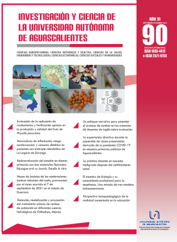Un enfoque narrativo para entender el proceso de cambio en las creencias de docentes de inglés sobre evaluación
DOI:
https://doi.org/10.33064/iycuaa2023904235Palabras clave:
Creencias Docentes, Evaluación, Cambio Creencias, ILEResumen
La evaluación es parte clave del proceso de aprendizaje, pues informa sobre fortalezas y áreas de oportunidad tanto a docentes como estudiantes. Por ello, resulta importante entender cómo es concebida la evaluación desde las creencias del profesor y sus prácticas en el aula. El siguiente trabajo deriva de una tesis doctoral de enfoque cualitativo, cuyos resultados provienen del análisis narrativo temático de la información obtenida a través de entrevistas con 12 profesores de inglés en dos instituciones de nivel superior en el estado de Aguascalientes, México. Las conclusiones se resumen en que las creencias docentes sobre la evaluación se caracterizan por: 1) ser de naturaleza dinámica; 2) atravesar por un proceso de mediación al verse desafiadas por el entorno; y 3) estar relacionadas de manera parcial con lo que el docente hace en el aula, resultando en ajustes tanto en las creencias del docente como en sus prácticas evaluativas.
Descargas
Métricas
Citas
• Casanova, M.A. (1999). La evaluación educativa. México, D.F.
• Cota, S. y Ruíz Esparza, E. (2013). Pre-service teachers’ beliefs about language teaching and learning_ A longitudinal study. PROFILE, 15(1), 81-95
• Crhová, J. y Domínguez, M.R. (2014). Change in beliefs on language learning of BA students in language teaching. Journal of Language and Cultural Education 2(2), 16 – 32
• Creswell, J. (2005). Educational research: Planning, conducting, and evaluating quantitative and qualitative research. Upper Saddle River: Pearson Education.
• Debreli, E. (2016). Pre-service teachers' belief sources about learning and teaching_ An exploration with the consideration of the educational programme nature. Higher Education Studies, 6(1), 116 – 127.
• Eisenhardt, S., Besnoy, K., y Steele, E. (2012). Creating dissonance in pre-service teachers’ field experiences. STRATE Journal, 21(1), 1 – 10
• Giboney, C.R. (2016). From student to teacher: changes in preservice teacher educational beliefs throughout the learning-to-teach journey. Teacher Development, 20 (3), 364 – 379.
• Kavanoz, S., Gülru, H., y Varol, B. (2017). Evolvement of pre-service language teacheers' beliefs through teacher education. International Journal of Progressive Education, 13(1), 119 – 135.
• Hart, L.C. (1999). Teachers' perceptions and beliefs about factors that influence change in their pedagogy. In E. Pehkonen & G. Toemer, (Eds.), Mathematical beliefs and their impact on teaching and learning mathematics (pp. 43-50). Proceedings of the School Science and Mathematics Preservice Teachers' Beliefs Conference on Mathematical Beliefs and Their Impact on Teaching and Learning. Oberwalfach, Germany: Universitat of Duisburg. Hermann, B.A. (1990). Teaching preservice teachers how to model thought processes. Teacher education and special education, 13(2), 73-81.
• Karaagac, M.K. y Threlfall, J. (2004). The tension between teacher beliefs and teacher practice: the impact of the work setting. Proceedings of the 28th Conference of the International Group of the Psychology of Mathematics Education, 3, 137 – 144.
• Martínez-Rizo, F. (2012). La evaluación formativa del aprendizaje en el aula en la bibliografía en inglés y francés. Revisión de literatura. Revista Mexicana de Investigación Educativa, 17(54), 849-875
• Mohammadabadi, A.M., Ketabi, S. y Nejadansari, D. (2019). Factors influencing language teacher cognition: An ecological systems study. Studies in Second Language Learning and Teaching, 9(4), 657 – 680.
• Pajares, F. (1992). Teachers' beliefs and educational research: Cleaning up a messy construct. Review of Educational Research, 62(3), 307 – 332.
• Raths, J. (2001). Teachers’ beliefs and teaching beliefs. ECRP, 3(1), 1 – 12.
• Smrtnik Vitulic , H. y Lesar, I. (2017). Changes in beliefs regarding good teachers and the characteristics of child development of primary education students. CEPS Journal, 7(4), 185 – 206.
• Tillema, H.H. (2000). Belief change towards self-directed learning in student teachers: Immersion in practice or reflection on action. Teaching and Teacher Education, 16, 575 – 591
Descargas
Publicado
Licencia
Derechos de autor 2023 José Armando Collazo García, Victoria Eugenia Gutiérrez-Marfileño

Esta obra está bajo una licencia internacional Creative Commons Atribución-NoComercial-CompartirIgual 4.0.
Las obras publicadas en versión electrónica de la revista están bajo la licencia Creative Commons Atribución-NoComercial-CompartirIgual 4.0 Internacional (CC BY-NC-SA 4.0)





